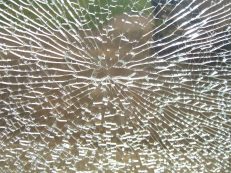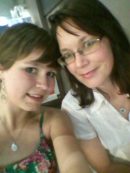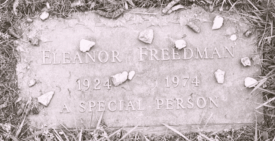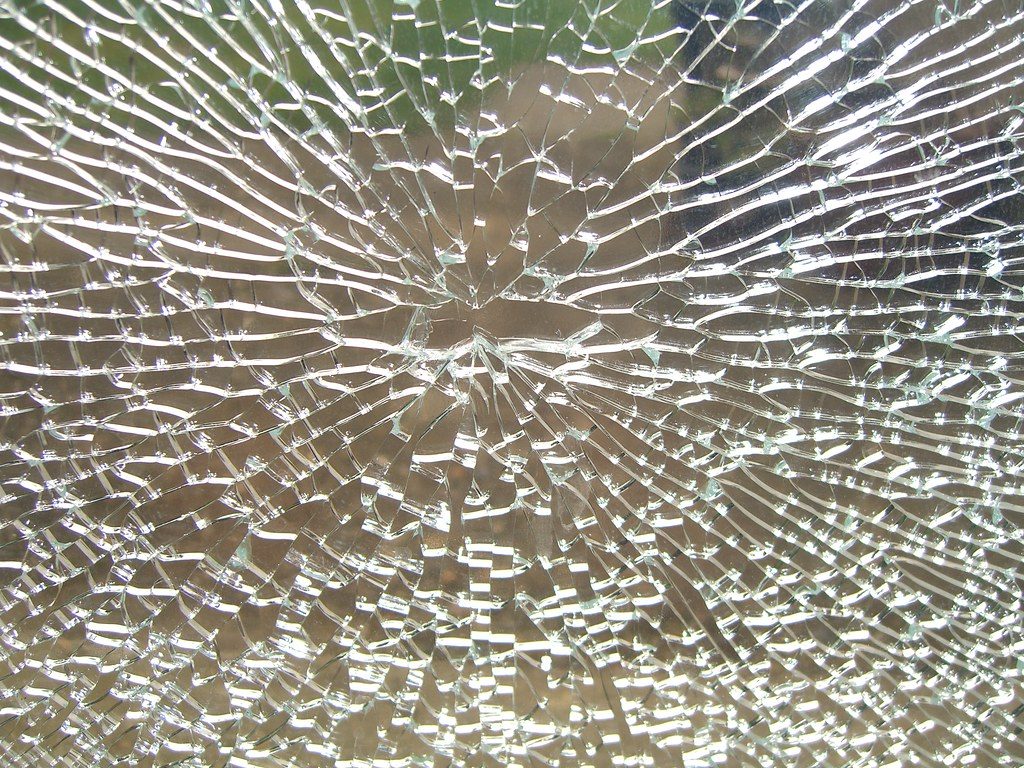
The car accident that killed my mother also broke my leg and cracked my skull.
 Faced with both the loss of my mother and my body’s own broken-ness, I short-circuited. Something inside of me shut down. Healing my body took priority. Mentally and emotionally, I withdrew into a detached, child-like state as all my energy went into that physical task.
Faced with both the loss of my mother and my body’s own broken-ness, I short-circuited. Something inside of me shut down. Healing my body took priority. Mentally and emotionally, I withdrew into a detached, child-like state as all my energy went into that physical task.
According to the five Kubler-Ross stages of grief (which I call bullshit on), acceptance is the end point. But I jumped right ahead to it, to a strange, removed, matter-of-fact sort of space. My sister told me, later, that she had to steel herself before each visit with me during those first few weeks, because I was so out-of-touch with reality, so disconnected from the earth-shattering grief she was going through.
But I was never more at peace with my mother’s death than in those six months between the funeral and when I started walking again. I needed to be. If I’d let myself register that grief, I think the dual broken-ness of my mind and body would have killed me.
There’s this quote by Joan Didion that goes: “Grief turns out to be a place none of us know until we reach it.” Now, after my mother’s death, whenever I read a book in which a character loses a loved one, I can tell instantly whether or not the author has known that grief in real life. That grief that, like Didion says, is something we can only know intimately.
If I went back now and re-read the stuff I wrote in the months immediately following the accident, without knowing that they were by me, I would say that the writer had never experienced grief. Even the tribute I read at her funeral sounds, now, like something written by someone else, someone writing what they knew they should be writing.
Even if the “grieving process” wasn’t a bullshit concept that I don’t believe in, I think being in the accident disrupted whatever process I would otherwise have had after my mom died. Her death only hit me around about the six-month mark. I’d just started walking again, on crutches, and with my body more-or-less healed, I was able, finally, to begin to metabolize the other damage I’d suffered.
And when it hit, it hit hard. I spent most of February 14, 2016, in my bed, crying.
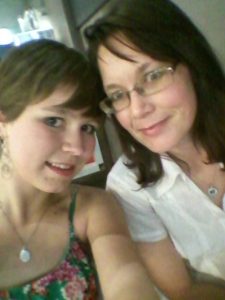
Aimee-Claire and her mother. (Courtesy of Aimee-Claire Smith)
Grieving isn’t some isolated thing you do, separate from everything else. You can’t schedule it in your calendar or tick it off your to-do list. Rather, I am grieving my mother constantly and continuously. Losing her affected and continues to affect every facet of my self and every area of my life, physically and emotionally, from the obvious to the seemingly unrelated. It affects my friendships. My career. The way I see other people’s mothers. My education. The movies and books I like. My sex life. How I feel about my name. My spirituality.
And, again, my relationship to and with my own body.
I once told a friend that she looks like her mom, and she grimaced. I didn’t understand. For me, “You look like your mom” is the highest compliment I can receive. I do look like my mom, and I love it. I have her smile, her nose, her cheeks, her brown hair. Since she died, I find myself suddenly loving even parts of my body I’ve never liked. My weird knees, my wide feet, my big thighs, my small breasts. I got them from her, and that makes me unable to feel insecure about them.
My body has become a physical monument to how who my mom was shaped who I am. I wear her clothes — blouses, sandals, earrings, jerseys I remember her in — and I love the differences and similarities in how our bodies carry (or carried) them. As I grow older, and eventually surpass the age she died at, I’ll get to see my body age in ways hers never got to.
Grief, I’ve learned, is as much a thing of the body as it is a thing of the heart. I once wrote a poem that begins: “My bones are filled with longing for you / my body breaks apart / seeks your body / seeks you. / It makes my chest sink in / this aching for you…” When someone dies, they are there, physically, and then suddenly they aren’t, and it’s that you feel so keenly.
When griefs hits, I retreat into my body by closing my eyes, seeking out dark rooms. I pinch or grip myself to remind myself that I am here. I press against whatever I am nearest to, be it a desk, the edge of a sink, a wall, to try and create pressure to balance out the pressure of my mom’s not-there-ness. And then there is crying. Crying is something my whole body does, though it seemingly begins in the eyes. My head gets hot. My nose runs. My mouth twists. My body shakes. My body rolls itself up, or presses itself into another body.
And I am constantly struck by the way my body continues, while my mother’s is gone and in decay. Every breath I take is one she doesn’t get to take. The first thing I wrote after the accident — squinting at the page through eyes swollen shut by my wounds — went: “My heart / is / beating / beating / beating / but / my mother’s heart / lies / still.”
My body recovered from the accident, mostly. I don’t have a sense of smell anymore — a weird side-effect of the crack in my skull — and I’ll get bad headaches for the rest of my life, but I can walk and run and hike again. My hair has grown back, and only the very observant notice the scar above my left eye.
I used to think that if I hadn’t been in the accident with my mother, my so-called process would somehow have been more streamlined, more linear, more sensical. But the more I interact with it, the more I realize that grieving is always messy, always complex, always not what you expect. Whether you do it in a broken body or an intact one.

